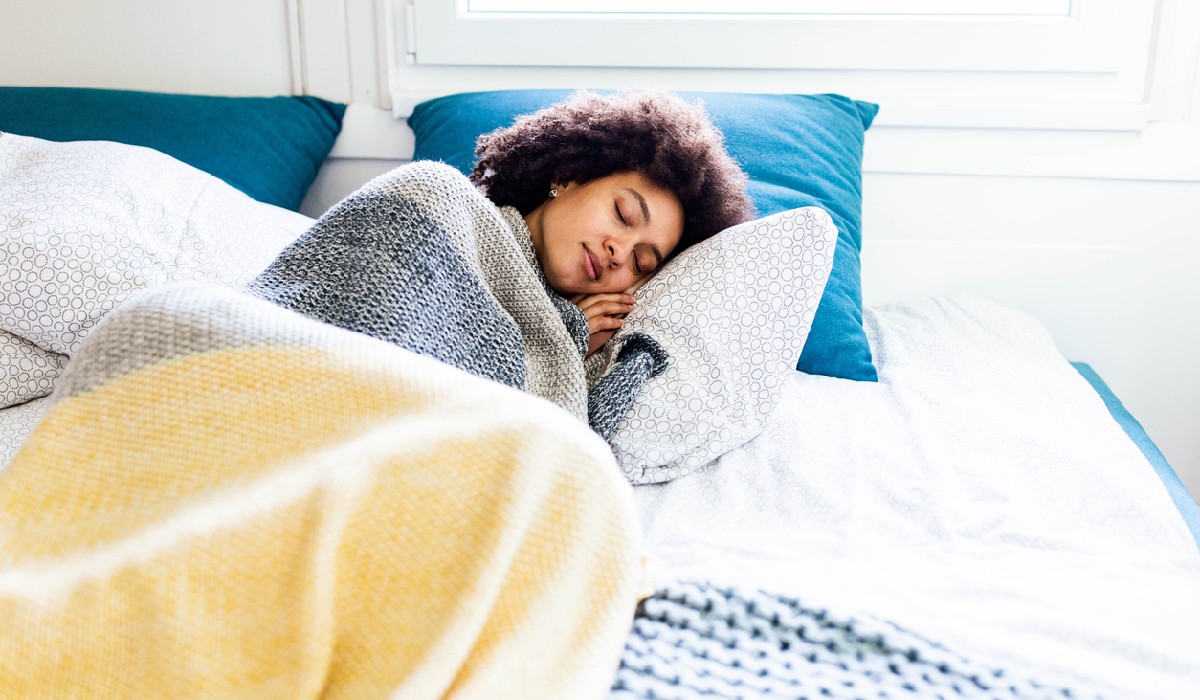
This content was originally published on OldHouseOnline.com and has been republished here as part of a merger between our two businesses. All copy is presented here as it originally appeared there.
Sleeping well is a challenge for many of us. Sleeplessness can be caused by a range of things, from stress and diet to the wrong bedding. A sleeping disorder could also be why someone rises multiple times a night or is unable to fall asleep at all. Whatever the reason may be, there are ways to achieve better sleep naturally.
We have 7 tips you can use tonight to help you have a peaceful, restful cycle of sleep. What’s even better is these tips don’t involve taking any medication or getting a prescription sleep aid. From establishing a consistent sleep schedule to finding a way to relax your body and mind before bed, we’ve got some of the best ways to naturally get a better night’s sleep.
Managing Stress & Enhancing Your Sleep Environment
Journaling
It may be difficult for some people who have racing thoughts before bedtime. If worries have been keeping you up at night, write them down. Keeping a “worry journal“ that lists out all of your thoughts & anxieties is an effective way of reducing stress levels before going to bed each night.
Light & Noise
Additionally, make sure you block out noise and light sources so there is no distraction while sleeping. Investing in blackout curtains and earplugs can go a long way. It’s also recommended to turn down the thermostat when falling asleep. A cool 68-70 degrees should be good for most people.
Deep Breathing Techniques
Practicing mindfulness and using mindful breathing can help center yourself before bed. Inhaling and exhaling deeply help us relax our bodies and minds. Close your eyes and breath in with your diaphragm (your stomach should swell with this movement) for at least five seconds. Hold the breath in for three seconds, then exhale for another five seconds. Do this until you are focusing only on your breathing instead of other things.
Essential Oils
Essential oils like lavender might also aid relaxation during this process. You might want to try diffusing lavender oil around your room before going to bed. You can also dilute these essential oils with a little water, put them in a spray bottle, and gently mist your bedding before sleep.
Bed & Bedding
A good mattress and pillow can be the key to better sleep. Most often, people change out their bedding but don’t think about getting an entirely new mattress or a new pillow. Old mattresses tend to be uneven and sag in different places, which negatively affects your body’s ability to get comfortable. Sometimes, they can be flipped to be slept on to battle this. But every ten years or so, it might be a good idea to invest in a new mattress. Also, a new pillow can help in the meantime. Think about shapes and types. Foam pillows suit some people by molding into the shape of their necks. Some people like down-filled pillows. There is the standard rectangular shape or wedge pillows for side sleepers. Think about your most restful sleep position before buying.
Eating and Drinking Habits
Track Caffeine Intake
Caffeine can stay in our system for several hours after consumption. This is especially so if you drink it late in the day. Be mindful of how much caffeine you are consuming throughout the day, and plan accordingly. If you find yourself struggling to fall asleep at night, try opting for decaffeinated beverages earlier in the day and avoiding caffeine after lunchtime altogether.
Avoiding Large Meals Before Bedtime
When trying to fall asleep, it’s important to avoid large meals close to bedtime as well as sugary snacks or drinks like soda or juice. The same goes for too much alcohol. Eating too close or late at night can cause indigestion and make it difficult to get comfortable in bed.
Physical Activity
Take a Walk Before Bed
Going for a walk a few hours before bed is an excellent way to tire yourself out naturally. Just 30 minutes will do. This activity also helps lower stress, increase overall cardiovascular health, and will be a great time to release any tension built in the body from the day.
Relaxing Activities Before Bed
Before turning off the lights, consider engaging in activities such as reading, yoga, or journaling that help your body relax while also calming your mind. Some people choose to knit or crochet. Some others choose to draw or doodle. Try keeping off phones or any screen time at least an hour before bed. The blue light emitted from TVs and phones keeps the brain awake, making restful sleep harder to attain.
Consult a Doctor & Planning Ahead
If adopting these tips does not seem to be working, consult with a doctor who may be able to provide further insight into potential causes of sleeping disorders like insomnia or sleep apnea. Although common, they require special guidance and adjustments. Certain conditions or medications may also ruin restful sleep, too, such as having celiac/ gluten sensitivities. Speaking with a medical professional might help rule out what is specifically ailing you.
Conclusion
Getting a good night’s sleep is essential for restoring and invigorating our bodies and minds. Through simple changes like establishing a consistent sleep schedule and creating a calming environment in the bedroom, we can achieve naturally better sleep without having to rely on prescription sleep aids. By adhering to the seven tips listed in this article you will be well on your way to having a more restful and refreshing night’s sleep. So maintain these tips, and you’ll be able to enjoy the benefits of a better night of rest.





